Description
ABSTRACT
Ship Wreck: What Nobody Wants
Winifred Tayo-Oyetibo*
Where in a maritime adventure, a constructive total loss occurs, the insurer upon a valid abandonment of the vessel by the insured, may elect to take over the interests of the insured in the vessel. The consequence of a scenario in which the insurer declines to take over the vessel, is the crux of this article. Although the Nigerian Maritime Administration and Safety Agency is empowered by the Merchant Shipping Act, 2007 to surcharge the shipowner for wreck removals, it will be inequitable to hold both the shipowner (who has abandoned his interest in the vessel) responsible for the wreck, and the insurer liable for a vessel he has not elected to take over. This article highlights the ambiguity in Nigerian marine insurance and admiralty laws on liability for wreck removal, in the light of judicial decisions from other jurisdictions, in an attempt to proffer realistic solutions to maritime stakeholders in Nigeria.
Keywords: Maritime, Vessel, Ship Wreck, Admiralty, Insurance.
INTRODUCTION
Nigeria, by virtue of its colonisation by the British, has majority of its laws and legal procedures especially before becoming a Republic in 1963, adopted from the United Kingdom and its Common Law. One of such laws is the Marine Insurance Act of 1906, which has its replica in Nigeria as the Marine Insurance Act of 1961. As laudable as this is, the converse is that as Nigerians we have also elected to apply all the flaws inherent in the commendable but comprehensive Marine Insurance Act, 1906. One of such flaws is its failure to provide for who is liable for wreck removal, where the insured has been compensated or paid for a constructive total loss of his ship or other marine property.
The Marine Insurance Act of 1961 (“the MIA 1961”) serves as the leading and basic foundation of marine insurance in Nigeria, and it includes, but not exhaustively covers, the loss or damage to ships or cargo, by which property is transferred between points of loading and discharge. A marine loss in this regard can either be total or partial1 and can be caused by maritime perils such as fire, pirates, captures, jettisons etc.2
A total loss may either be an actual total loss (“ATL”), or a constructive total loss (“CTL”).3 An ATL occurs where a vessel is so damaged or destroyed, that it loses its characteristic form.4 A wreck will be considered an ATL in this case. An ATL can also occur where the insured is irretrievably deprived of his vessel.5 In this case, a vessel captured by pirates is an ATL.6 On the other hand, a partial loss is any loss that falls short of a total loss, such as a lack of evidence for a total loss, as described under section 57 of the MIA 1961.
* LL.M, BL, ACIArb. Counsel, Mike Igbokwe (SAN) & Co., Lagos. The author’s areas of practice include shipping, aviation, dispute resolution, insolvency, corporate governance and business advisory services.
- Section 57(1) MIA 1961.
- Ibid, ss. 5(3) and 56(1).
- Ibid, at s. 57(2).
- Ibid, at s. 58(1).
- Ibid.
- Masefield AG v Amlin Corporate Member Ltd (2011) EWCA Civ 24 (Sir Sydney).

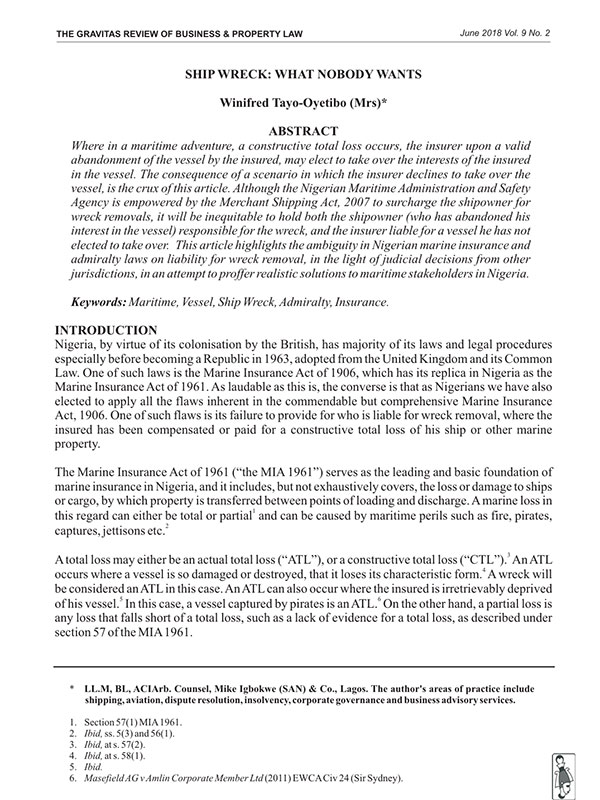
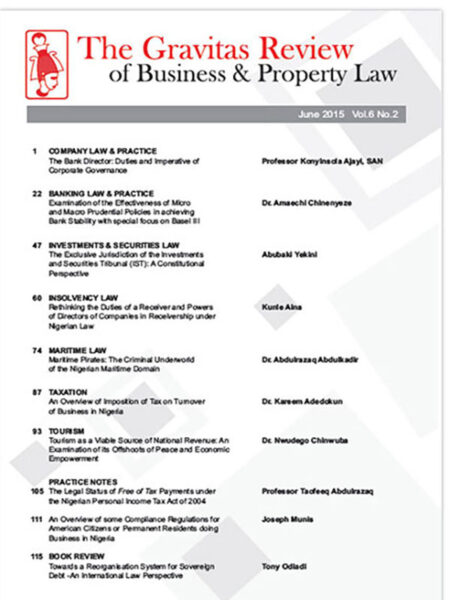
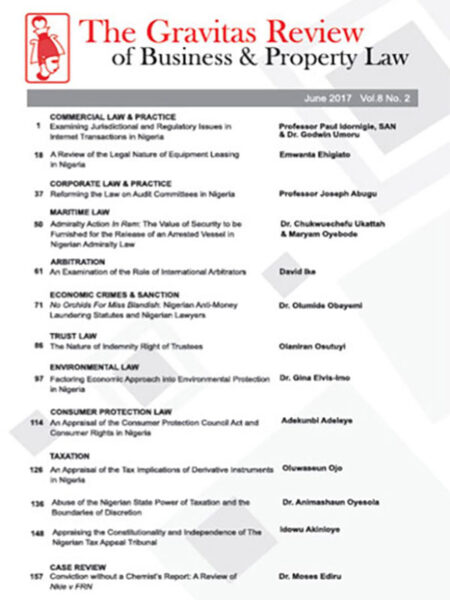



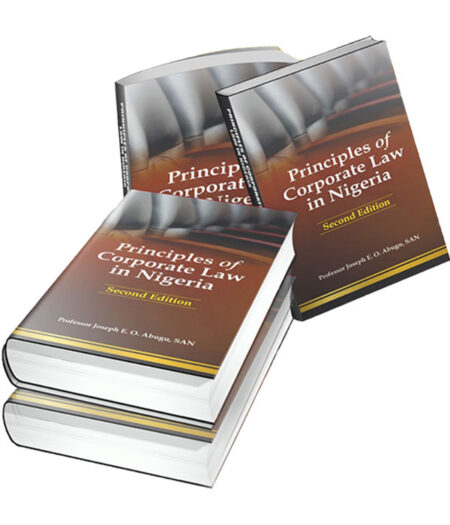
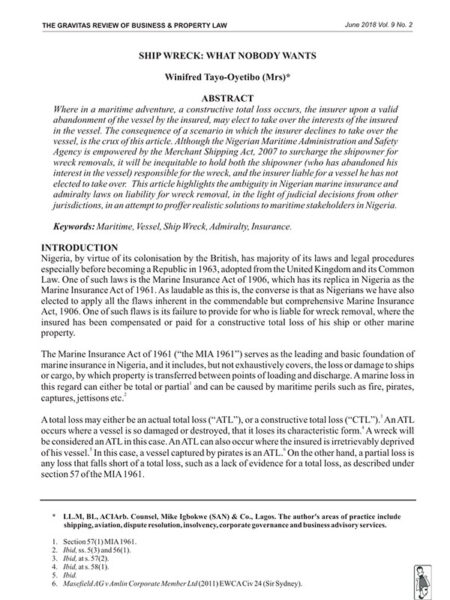
Reviews
There are no reviews yet.